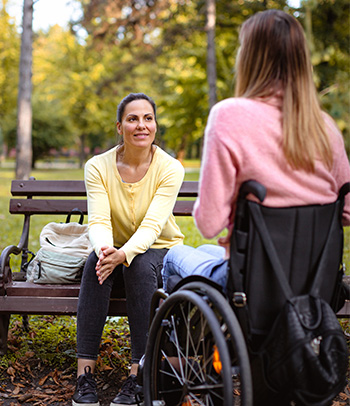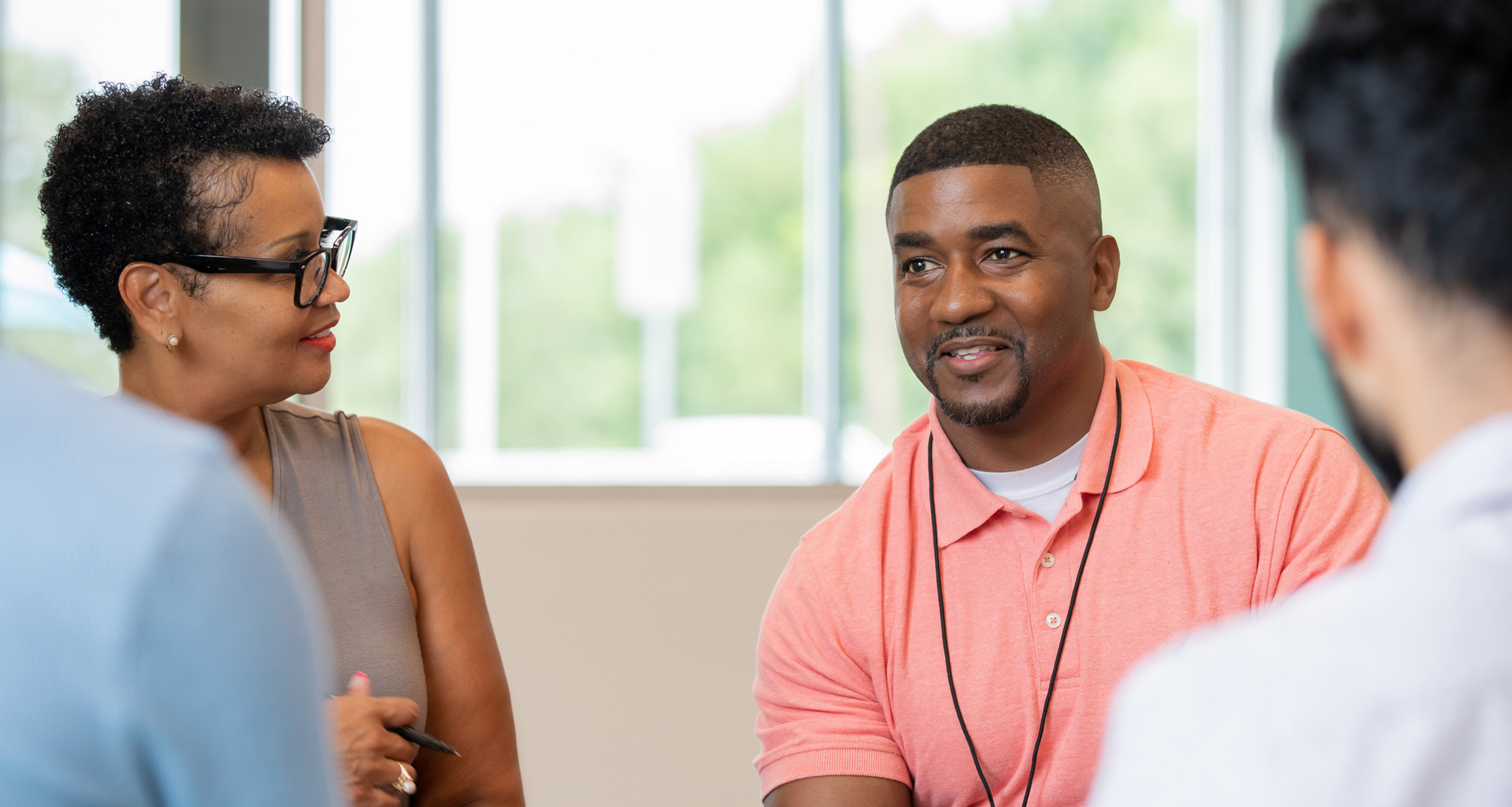Learning someone you care about has experienced a trauma can be difficult, but it can also be a chance for your friend or loved one to be heard and to begin healing.
When someone shares the details of a traumatic experience with you, it can be hard to know the right way to respond. You may find yourself becoming angry about what happened, feeling sad that you weren’t able to prevent it, or even confused why your loved one can’t seem to “get over it.”
These can be typical responses to hearing about someone else’s trauma. But when someone shares something so personal with you, it can be an opportunity to listen, focus on their experience and perhaps become a part of their healing journey.
Read below for some important things to keep in mind, as well as some helpful resources to consider as well.
Listening, Supporting and Healing
Learning someone you care about has experienced a trauma can be difficult, but it can also be a chance for your friend or loved one to be heard and to begin healing. As a supportive listener, you can become a part of their healing process. 
- Believe them. It may be hard to accept what you’re hearing at first. You may wonder why they waited so long to share or why they can’t remember certain details, but that’s not for you to question or figure out. It’s important to show that you believe what they’re saying. You can start with “I believe you” or “I’m here for you and I believe your story.” This can establish feelings of safety and trust between you.
- Affirm their feelings. When people share their traumatic experiences, they often want to be heard and to connect with others. You don’t have to make their pain go away or convince them to “move on.” Instead, listen and try to connect with words like “I’m so sorry you went through this” or “I am here to support you” or “I am not here to judge you; I’m here to listen.”
- Listen. Hearing about trauma can make some people uncomfortable. It may be hard to hear about something sad or painful, but even if it’s tough, listen. Do not try to change the subject or lighten things up with a story of your own. Don’t jump in with offers of advice and answers to their problems. Often, just getting the story out and being heard is a good first step for a trauma survivor.
- Focus on them. Your loved one’s story of trauma may bring about a lot of questions and emotions for you. You may wonder about some of the details they aren’t sharing, or you may be angry or hurt that you weren’t told before now. While all of this is understandable, it’s important to focus on the person sharing their trauma and to give them your attention and support without judgment.
- Try to avoid “quick fixes.” It’s natural to want to solve things or make people feel better immediately. We may use phrases like “Look on the bright side” or “That’s in the past, it’s time to move on.” Sometimes we try to minimize trauma with phrases like “That’s not so bad – listen to this story…” But those reactions often do the opposite of helping. They can make a person feel guilty for not healing more quickly or wonder if they should share at all. It may make them feel pressure to fix themselves. Instead, listen and focus your attention on their story. You don’t have to have answers or solutions to be helpful.

- Ask how you can help. It’s OK not to know what your friend or loved one needs. Tell them you are here to help in any way. Maybe it’s just a listening ear, or maybe it’s more practical help like making a meal, watching their kids during a therapy appointment or running an errand when they don’t feel up to it.
- Remind them to take care of themselves. Dealing with the pain of a traumatic event can take a toll mentally and physically. Encourage your loved one to get enough rest, move their body in healthy ways, and avoid using drugs or alcohol as a way to cope. Of course, you’re not suggesting exercise or sleep will heal their trauma, but these are small ways they can take care of themselves, reduce stress and manage their emotions while they work through their trauma.
- Share resources. Not everyone is aware of the helpful resources available to them or how to go about getting the support they need. Offer to help connect them to resources such as counseling, a support group or an anonymous hotline.
- Take care of yourself. Listening to someone’s story of trauma may trigger a memory of a traumatic experience of your own, or you may be emotionally drained just from listening. Be sure to take care of yourself too. Get support if you need it, manage your own stress and get enough rest to recharge.
- Continue to check in. After your initial conversation, continue to check in. Offer reassurance and let them know you’re here and will continue to support them the best ways you know how.
- Seek help. When someone shares a traumatic experience with you, it’s possible you’ll feel like they’re in danger or may hurt themselves or someone else. If that’s the case, get help immediately. Call the Veterans Crisis Line at 988 and press 1. You can also use the text or chat feature. The Veterans Crisis Line is free and confidential, and qualified responders can connect you with the resources you need.
Resources
- The Department of Veterans Affairs (VA) offers several resources for Veterans, their families and friends.
- Understanding PTSD: A Guide for Family and Friends – a booklet designed to help you support a loved one who is dealing with PTSD or who has experienced trauma
- PTSD Family Coach – a mobile app to support a loved one with PTSD and to help you manage your own needs
- Coaching Into Care – a program to help you encourage a Veteran to get support or mental health care
- Mental health treatment and resources – several treatments and resources designed to help Veterans, families and friends manage difficult situations, cope with trauma and get the support they deserve
- Make the Connection – stories and videos from Veterans sharing their difficult experiences and what helped them cope
- Inspiring Stories – stories and videos of TriWest Healthcare Alliance (TriWest) employees, Veterans and community members whose experience with trauma and life challenges set them on a path to healing.
When someone shares a trauma, you have a chance to listen and support them. Use these tips and resources to become a part of their healing journey.







